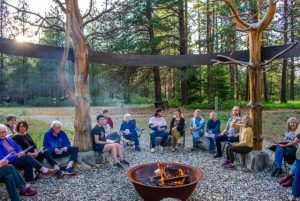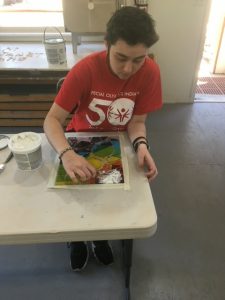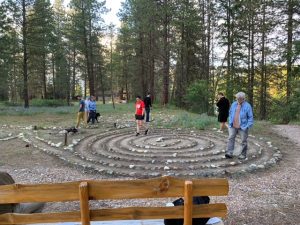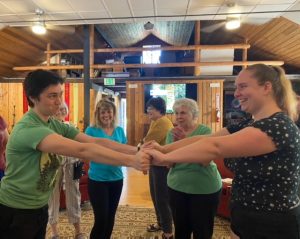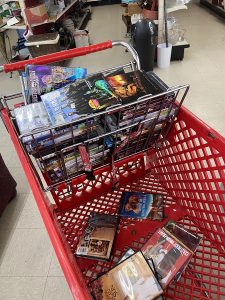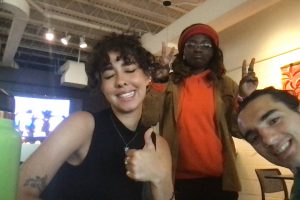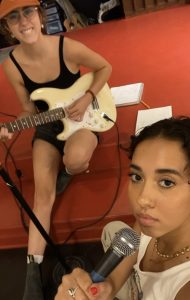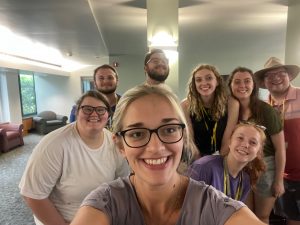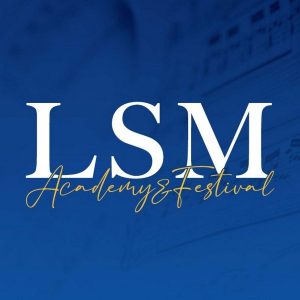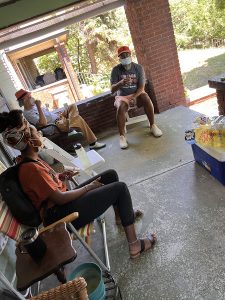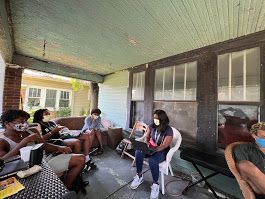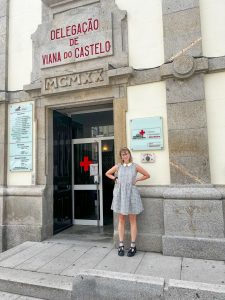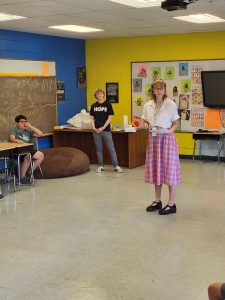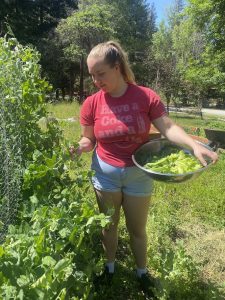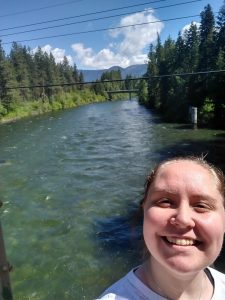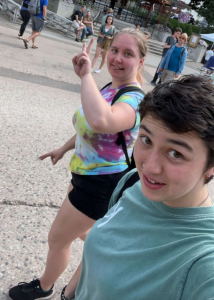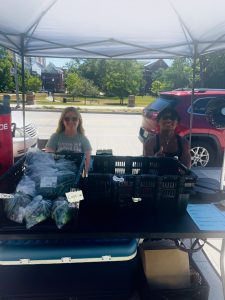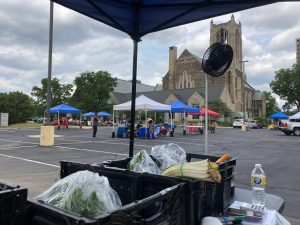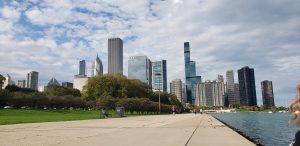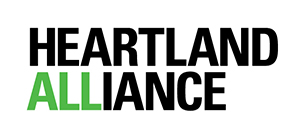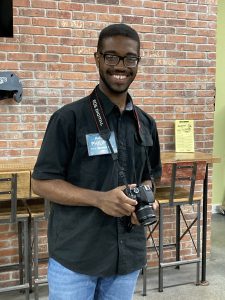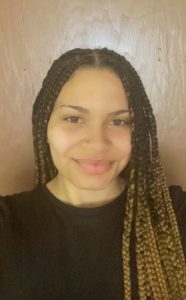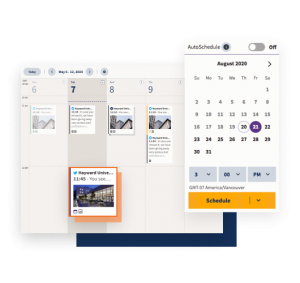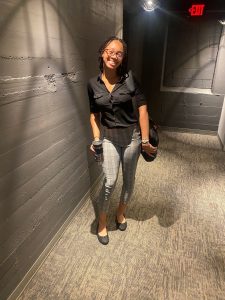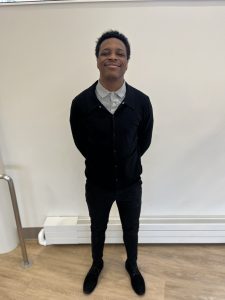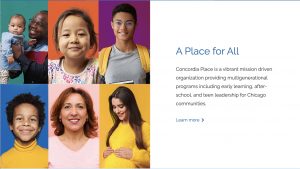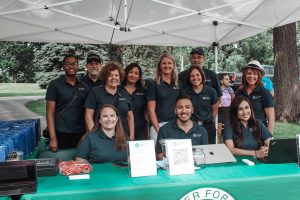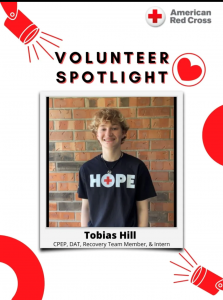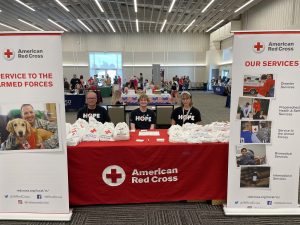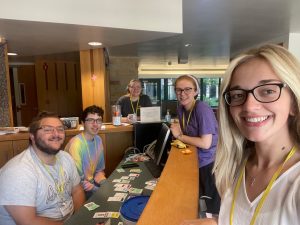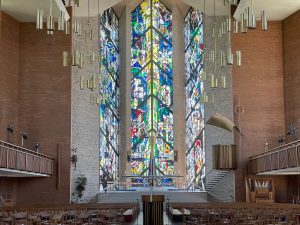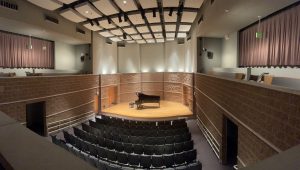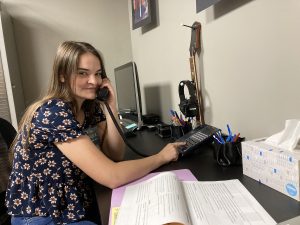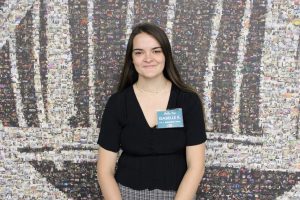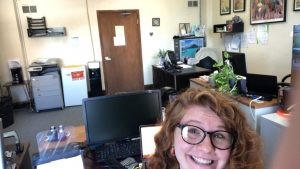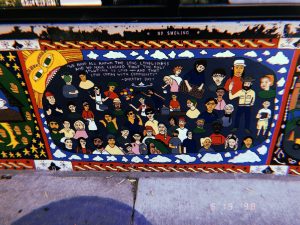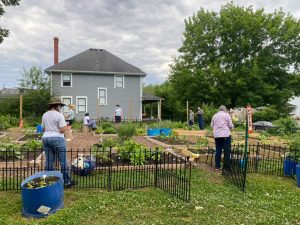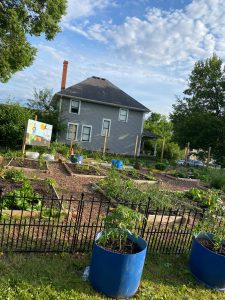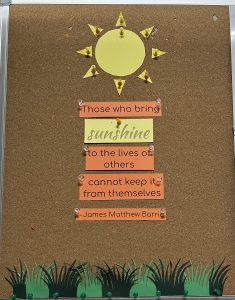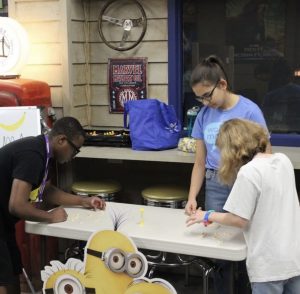 Since my last blog post, my time here at the Bridge has remained busy, and it is hard to believe that I only have two more weeks of work left. In the past weeks, I have been able to start planning the fall volunteer appreciation event, attend a behind-the-scenes field trip to a local church, and assist in training volunteers. I have also continued to help with volunteer events and student programs, and I even had the chance to lead a few of my own, something that previously would have scared me.
Since my last blog post, my time here at the Bridge has remained busy, and it is hard to believe that I only have two more weeks of work left. In the past weeks, I have been able to start planning the fall volunteer appreciation event, attend a behind-the-scenes field trip to a local church, and assist in training volunteers. I have also continued to help with volunteer events and student programs, and I even had the chance to lead a few of my own, something that previously would have scared me.
While most volunteer groups will only come for two or three hours, there was a group a few weeks ago that dedicated six hours of their day for three days in a row to serving at the Bridge. This was a group of fifteen hardworking high school students and five dedicated chaperones. On one of the days, we took a half hour out of the day to do a worship session outside. During this time, we talked about why we are here and what work we are called to do. 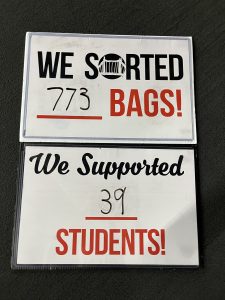 The founder of the Bridge mentioned a bible verse that became our motto for the week: “and let us run with perseverance the race marked out for us” (Heb. 12:1). Throughout the rest of the week, we talked about how not all of us are necessarily called to ministry or non-profit work, but we still all have races to run that are still important, and that we can run our races as we are; we do not need to change who we are or wait for a specific time in our lives. That week, their race was to sort clothes to serve the community, and by the end of it, the group had sorted over 700 bags of donations, which is enough to fund programs for thirty-nine students for a year. This made me think about what my race is. Some people know exactly what they are called to do and what their purpose is, but I have always been someone interested in so many things I could never choose what exactly I want to do with my future. Recently, however, I have begun to accept that this is okay, and that for now, my race is to continue to learn about myself as I finish my internship a nd my final year of school. And while running through life blind can be scary, I have learned that eventually I will reach the finish line.
The founder of the Bridge mentioned a bible verse that became our motto for the week: “and let us run with perseverance the race marked out for us” (Heb. 12:1). Throughout the rest of the week, we talked about how not all of us are necessarily called to ministry or non-profit work, but we still all have races to run that are still important, and that we can run our races as we are; we do not need to change who we are or wait for a specific time in our lives. That week, their race was to sort clothes to serve the community, and by the end of it, the group had sorted over 700 bags of donations, which is enough to fund programs for thirty-nine students for a year. This made me think about what my race is. Some people know exactly what they are called to do and what their purpose is, but I have always been someone interested in so many things I could never choose what exactly I want to do with my future. Recently, however, I have begun to accept that this is okay, and that for now, my race is to continue to learn about myself as I finish my internship a nd my final year of school. And while running through life blind can be scary, I have learned that eventually I will reach the finish line.
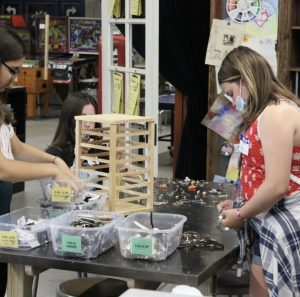 While I do not know where exactly life will be taking me, I still have some important takeaways from my time at the Bridge. I have determined that one of the most rewarding aspects of my internship has been able to connect people with the opportunity to serve their community. Service has always been an important aspect of my life, so it has been very impactful to help people make it a part of theirs. Additionally, my time here has made me think about the role of service in my future. Many of the volunteers I have interacted with take time out of their busy lives every week to serve at the Bridge, and it has made me realize that helping your community does not need to be a full-time job or a week-long event; it is something almost everyone can do. So despite still not knowing what exactly my calling and purpose in society is, I still plan to keep on running my race and see where life takes me.
While I do not know where exactly life will be taking me, I still have some important takeaways from my time at the Bridge. I have determined that one of the most rewarding aspects of my internship has been able to connect people with the opportunity to serve their community. Service has always been an important aspect of my life, so it has been very impactful to help people make it a part of theirs. Additionally, my time here has made me think about the role of service in my future. Many of the volunteers I have interacted with take time out of their busy lives every week to serve at the Bridge, and it has made me realize that helping your community does not need to be a full-time job or a week-long event; it is something almost everyone can do. So despite still not knowing what exactly my calling and purpose in society is, I still plan to keep on running my race and see where life takes me.
– Sophia Panfil, The Bridge Teen Center
